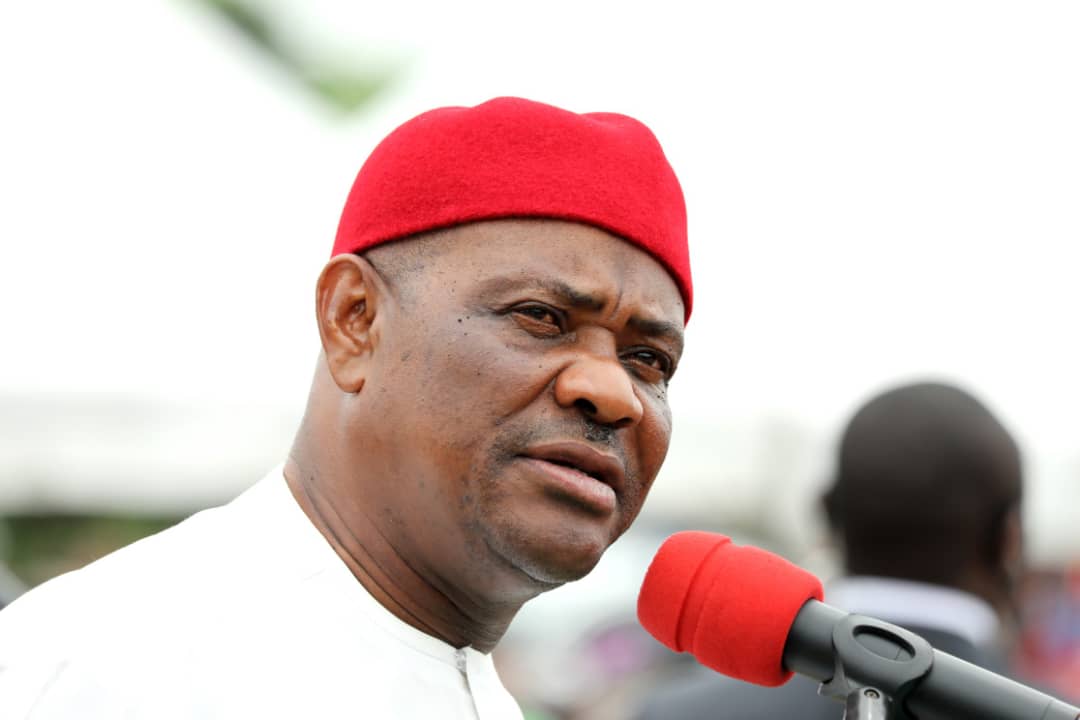Editorial
PTF: Kudos To RSG

For the umpteenth time, Nigeria’s federal structure seems to be on trial following the judgment of a Federal High Court in Abuja restraining the Federal Government from further making deductions from the Federation Account to fund its agencies not listed in the 1999 Constitution for direct allocation.
Delivering judgment in a suit instituted by the Rivers State Government to challenge the unlawful deductions from the Federation Account, Justice Ahmed Mohammed held that Sections 161 and 162 of the 1999 Constitution were glaringly breached by the Federal Government in making a direct allocation to the Police Trust Fund (PTF) from the Federation Account.
Mohammed upheld the case against the unjust deduction and ordered that the fund belonging to Rivers State but used to fund the PTF by the Federal Government be refunded accordingly. The judge, however, declined to extend a similar order of refund to the 35 remaining states because they were not parties in the suit, neither did the Rivers State Government file the matter on their behalf.
Following the milestone ruling, the state government has rightly conveyed its preparedness to halt the Federal Government from further deduction from the said account. It is no longer news that a Federal High Court, last year, in Port Harcourt, at the instance of the Rivers State Government, ruled that states, and not the Federal Inland Revenue Service (FIRS), should be collecting Value Added Tax (VAT) and Personal Income Tax. The matter is currently pending before the Supreme Court.
The judgment on the PTF has further bolstered the agitation against the customary debasement and misapplication of the 1999 Constitution by the Federal Government, contrary to a correlative relationship under federalism. The ruling further emphasises the demand for restructuring of the country based on the principle of federalism. The court had, by the judgment, given its interpretation of Sections 161 and 162 of the Constitution.
Most of all, the said judgment is a big hit with exponents of a restructured Nigeria where true federalism is the telltale sign. It can only be appealed against and upturned or affirmed by a higher court. Since the provisions of the Constitution on the subject are definitive, we urge the Federal Government to effectuate the ruling rather than appeal against it.
Governor Nyesom Wike, who seems to be spearheading a revolution towards the attainment of true federalism, deserves to be hailed for the initiative. Other governors should do likewise and be enthused as the Rivers Chief Executive. Enough of the Federal Government’s double-dealing. Curiously, the same federal authorities that have consistently denied states the right to own a police force, deduct from them to finance an exclusively federal agency. Shame!
Without exaggeration, the Federal High Court judgements on VAT and PTF exemplify Wike’s avidity to reposition the states and country for greater development. It sends across a tocsin of the contingency of true federalism and social restructuring in the country in the near future. It is comparable to convalescing from the Federal Government all jettisoned rights and privileges domiciled in the states. Fortunately, Wike has become the rat that bells the cat.
Surely, we cannot continue to patronise practices that counterbalance our advancement, impair our potentials and make-believe our corporate perceptiveness. It is time to address ordeals in our country extirpating resourcefulness and personal gumption. Nigeria is called a federal system yet unitary in practice. It is time for a constitutional amendment to reflect our appropriate composition.
Given our political configuration, state and local governments are positioned to compete in terms of vision and idea engendering, creation of a sanctioning environment for investments, strategic resource management, human capital and infrastructural development, politics, and best electoral practices, leading to the greater exhilaration of the people. Therefore, Nigerians must nudge from their insentience and clutch true federalism.
Now that the Rivers State governor has exposed other governors and indeed Nigerians to the illegalities of the VAT and PTF deductions, let the state governments and relevant stakeholders, regardless of party allegiance; hound the matters to their logical conclusion. Surprisingly, the state governors are reticent on the issues Wike challenges in court.
Despite the enormous monies ostensibly domiciled in the PTF, the question of parsimonious funds for training and other operational exigencies remains a major challenge for the police, raising the crucial question of corruption in the administration of the funds. Recently, rights activist and lawyer, Femi Falana, SAN, called for an examen into the funds deducted from the Federation Account and remitted to the PTF which he said had not been utilised to equip and train the police.
On the stated reason of lack of funds, citizens are daily extorted by police officers while carrying out their basic duties. A myriad of ordinary Nigerians struggling to make ends meet as drivers, traders, or shopkeepers are crossed by armed police officers, who request bribes and commit human rights abuses against them. Those who decline to compromise are again and again threatened with arrest and physical harm. Far too often, these threats are carried out.
We denounce vehemently the role of the members of the National Assembly who, though are constitutionally commissioned to enact laws, went far beyond their powers in legislating the Police Trust Fund Act by contravening the obvious provisions of the Constitution. It is incumbent upon the Revenue Mobilisation and Fiscal Commission, the Offices of the Accountant-General, and the Attorney General, who were principal parties in the case, to prevail on Mr President to heed the judgment.
Editorial
Beginning A New Dawn At RSNC

Editorial
Sustaining OBALGA’s Ban On Street Trading

Editorial
AFCON ’25: Bravo, Super Eagles, But…


